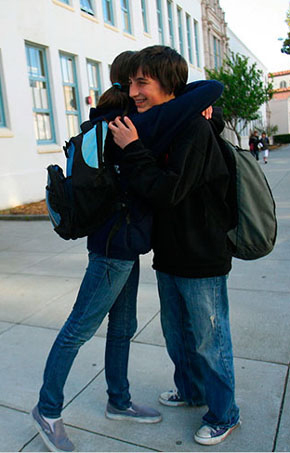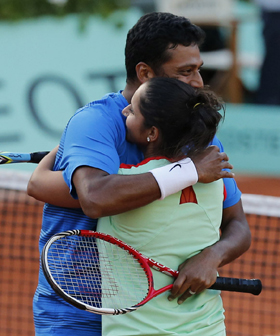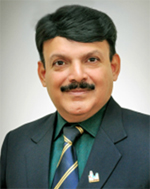To Hug or not to Hug
To Hug or not to Hug
Mangalore Today News Network
The needless controversy over a 12th standard student hugging a schoolmate in Kerala highlights the urgent need for reviewing the standard of Indian educational institutions and improving our quality of education.
By Dr. G. ShreeKumar Menon Mangaluru, Jan 2, 2017: A simple innocent public hug between two students has invited chastisement of expulsion from an educational institution in Thiruvanthapuram. The hug was given by a 12th standard student to accolade the performance of a 11th standard girl student in a cultural event. The staff and Management did not approve the congratulatory hug; they perceived a sexual angle in the episode. Recently, Mr. Shashi Tharoor, MP has mediated in the incident to arrive at an amicable settlement to this silly incident. Was the Management JUSTIFIED in taking such an antediluvian attitude?
Mangaluru, Jan 2, 2017: A simple innocent public hug between two students has invited chastisement of expulsion from an educational institution in Thiruvanthapuram. The hug was given by a 12th standard student to accolade the performance of a 11th standard girl student in a cultural event. The staff and Management did not approve the congratulatory hug; they perceived a sexual angle in the episode. Recently, Mr. Shashi Tharoor, MP has mediated in the incident to arrive at an amicable settlement to this silly incident. Was the Management JUSTIFIED in taking such an antediluvian attitude?
The Wikipedia states “A hug is a form of physical intimacy, universal in human communities, in which two or more people put their arms around the neck, back, or waist of one another and hold each other closely. If more than two persons are involved, it is referred to as a group hug … Depending on culture, context and relationship, a hug can indicate familiarity, love, affection, friendship, brotherhood or sympathy…. A hug can indicate support, comfort, and consolation, particularly where words are insufficient. A hug usually demonstrates affection and emotional warmth, sometimes arising from joy or happiness when reunited with someone or seeing someone absent after a long time… A hug can range from a brief one second squeeze, with the arms not fully around the friend to an extended holding. The length of a hug in any situation is socially and culturally determined… Unlike some other types of physical contact, a hug can be practiced publicly and privately without stigma in many countries, religions and cultures, within families, and also across age and gender lines, but is generally an indication that people are familiar with each other.”
How far was the Management justified in prescribing expulsion for an innocent congratulatory hug? This incident has occurred in the nearly 100% literate State of Kerala, also, where a sizeable chunk of the population work abroad and a large student population study in various Western Universities. Was the Management justified in their strong disapproval and harsh punishment of expulsion?
HUGGING AS A FORM OF SOCIAL BEHAVIOUR Till recently, handshake between the sexes was unacceptable in India. At functions, events and programs males and females never used to shake hands. A polite Namaste was the accepted social norm. But today shaking hands between the sexes is accepted as a correct norm of behavior. With the proliferation of TV and internet, people are routinely watching sports professionals and artistes hugging each other after an event to express their solidarity and complementing the performance of the victor. Youngsters are constantly emulating sports and film stars in their day to day life.
Till recently, handshake between the sexes was unacceptable in India. At functions, events and programs males and females never used to shake hands. A polite Namaste was the accepted social norm. But today shaking hands between the sexes is accepted as a correct norm of behavior. With the proliferation of TV and internet, people are routinely watching sports professionals and artistes hugging each other after an event to express their solidarity and complementing the performance of the victor. Youngsters are constantly emulating sports and film stars in their day to day life.
The reaction of the school authorities in Thiruvanthapuram, capital of Kerala appears totally ridiculous and incongruous. The problem is that a great chunk of schools, colleges and universities are in the hands of different religious entities, who have self-imposed upon themselves the responsibility to do moral policing and segregation of sexes. Excellence in education is interpreted to mean segregation in the classrooms, canteens, libraries and auditoriums. They are least concerned that not a single school, college or university from India is anywhere in the global rankings. These ingenious manipulators play around with words like ‘global’, and ‘international’ to their names for undeserved respectability and public awe. Beyond their names there is nothing, except making their institutions and campus into mini Prisoner of War (POW) camps. They are all just cramming institutions with hardly any excellence to boast of. No wonder that children from higher income groups and upper middle class flee to Western universities in search of quality education.
POOR STANDARD OF EDUCATION
Has anybody thought why students from Western countries do not come to India for education, despite low fees? The answer is simple; we are unable to offer quality education. Educational managements in India are forever obsessed with their misogynistic attitudes that they are unable to comprehend normal human behavior. Most of these institutions take Capitation fees in cash, no receipts or taxes are paid, no wonder that these students who see such unethical practices turn out to be future tax evaders! Statistics reveal the sordid truth. Out of 125 crore Indians only 1.5% (1.9 crore) pay income tax.98.5% Indians don’t pay Income tax. But every year, more than 5.4 million Indians go abroad to conduct business, attend meetings, study, sight-see, shop, honeymoon and to visit friends and relatives.
When traveling abroad, Indian tourists are among the world’s highest-spending globetrotters. Their spending power has been estimated to be four times that of the Chinese and Japanese. In fact, most Indian trips include leisure and shopping components, and nearly half of all Indians who venture abroad do so to shop with almost 75% buying branded duty-free goods. The average Indian traveler spends $1,200 per visit as compared with Americans who spend about $700, and Brits who spend $500. Yet Indians refuse to pay income tax, as they have hardly been taught any ethical or moral values whatsoever in their schools and colleges. What is it that they have been taught?
The Deccan Chronicle newspaper dated December 31st 2017 reports that in Kerala “A rough estimate showed that education institutions in the state collected over Rs 300 crore in capitation fees this year. This money is not receipted or accounted for and is black money. The money is either invested in real estate or abroad. If it was invested in real estate, it ended up artificially hiking real estate prices and resulted in inflation and price distortion, sources said. Apart from that, a lot of the capitation fees are in the form of donations. They are also generated during admissions to plus two courses. The donations for plus two courses ranged from Rs 30,000 for art subjects to even Rs 3 lakh for science subjects. There are a total of 2, 45,795 plus two seats in the merit quota, 38,875 management seats, 20,830 community quota seats and 55,630 seats in unaided schools. Donations are collected for all seats other than the merit quota.”
This is what the students are seeing, their parents forced to raise money in cash, pay it surreptitiously to Principals, Vice Principals in cash, nobody issues any receipts. The students are thus initiated into the wonderland of Indian black money in these educational institutions. Thereafter, the managements swing into action, segregating boys and girls, forbidding them to even speak to each other, dress regulations, curfew hours in hostels for girls and a host of forbidden activities. With this kind of initiation is there any wonder that nobody pays taxes? When some of these students go to Western universities they see the phenomenal difference in attitude and the invigorating educational and research atmosphere that exists there. The focus is only on academic excellence. Many of the boys and girls who go from here stay together in apartments in order to save on hostel fees. Nothing untoward happens.
Students in Kerala have of late expressed symbolic protests against such unwanted diktats of segregation and repression.
Recently, girls in a Kerala college wore lungi and dhoti in protest against ban of jeans on campus. The government should come forward to ensure that Right to Education implies education without payment of capitation fees or donations of any kind, zero gender discrimination, and as for suspensions and expulsions the prior written approval of the Director of Education should be obtained. Only such deterrent action will prevent students from being expelled just for a mere hug. We also need to teach our students the etiquettes of hugging.
 Dr G ShreeKumar Menon, IRS (Rtd) Ph.D (Narcotics) is a Former Director General, National Academy of Customs Excise and Narcotics & Multi Disciplinary School of Economic Intelligence; Fellow, James Martin Center for Non Proliferation Studies, USA; Public Administration, Maxwell School of Public Administration, Syracuse University, USA and AOTS Scholar, Japan. He presently serves as Registrar, Yenepoya University, Mangalore. He may be reached at shreemenon48@gmail.com
Dr G ShreeKumar Menon, IRS (Rtd) Ph.D (Narcotics) is a Former Director General, National Academy of Customs Excise and Narcotics & Multi Disciplinary School of Economic Intelligence; Fellow, James Martin Center for Non Proliferation Studies, USA; Public Administration, Maxwell School of Public Administration, Syracuse University, USA and AOTS Scholar, Japan. He presently serves as Registrar, Yenepoya University, Mangalore. He may be reached at shreemenon48@gmail.com
- Rethinking Drug Seizure Coverage: A Call for Health-Centred Narratives
- Substance abuse - A pressing concern among medical students
- China is winning the trade war without fighting
- Poll promises can become political nightmares
- While India sticks to death by hanging other execution methods vary across the world
- Spiking of drinks, a grave threat for students’ security
- Burden of drugs and substance use among university students in India
- Mangalore medic’s miracle in Bombay 1957
- Needed a national protocol for treatment of substance use disorders
- The Lingering Menace of Drug Abuse Among the Indian Youth—It’s Time for Action
- Need For ‘Students, Alcohol and Drugs’ survey
- New Synthetic Drugs Trapping Youth
- Mood Modifying Chips - Future of Drug Use
- Kashmir Bhavan in Bengaluru: A must visit place
- "MAI and I" Book of Angelic Emotions
- Draupadi Murmu - The New ’President of India’
- Anthony Ashram in the city grows a classic museum
- First College of Fisheries in India - A Golden Jubilarian
- Flushing Meadows - A Vintage Mansion
- The Colonel�s Bequest
- A Mangalorean PM and his RBI Governor Brother: The Extraordinary story of the Benegal Brothers
- There is no higher religion than Truth: Theosophical Society
- L�affaire - Ashu & Yiju of Mangalore
- Mangalore in Kowloon
- 1568 to 2018 AD: 450 years of Christianity in Mangaluru
- Vice President elect Naidu moves on from nadir to zenith, the phenomenal journey
- Embracing the Outdoors: How Heated Jackets Are Revolutionizing Cold Weather Activities
- Efficient and Sustainable Packaging Solutions with FIBCs
- The Hybrid Kilt Revolution | Where Tradition Gets Trendy
- Affordable Elegance | Embrace Style on a Budget with Cheap Kilts
- Unleashing Style and Functionality | Exploring Tactical Kilts
- Mangalore’s Heroic Lady marks 105th Birthday
- Santa the Christmas spirit
- Geriatric care: Mangalore strikes a fine balance
- The Don Who Made Two Empires to Clash
- CHITRAPUR SARASWATS - A Great Kanara Community
- Our new President Ram Nath Kovind’s significant journey to Rashtrapathi Bhavan
- Marriages made in heaven, big fat weddings made in India
- Eid insight - The giver of glad tidings
- CITY INFORMATION
- TRAVEL
- TOURIST INFORMATION
- HEALTH CARE
- MISCELLANEOUS


 Write Comment
Write Comment E-Mail To a Friend
E-Mail To a Friend Facebook
Facebook Twitter
Twitter  Print
Print 